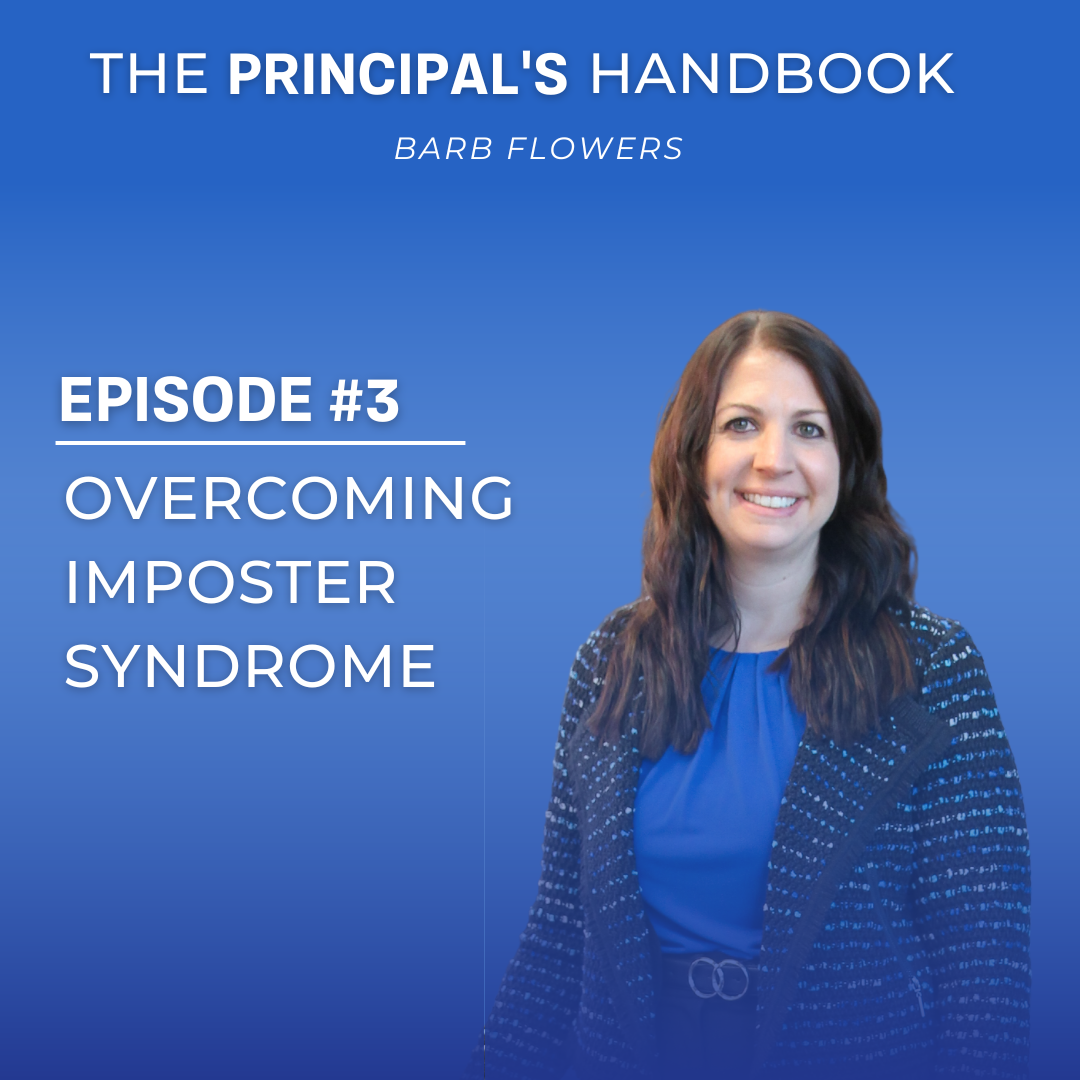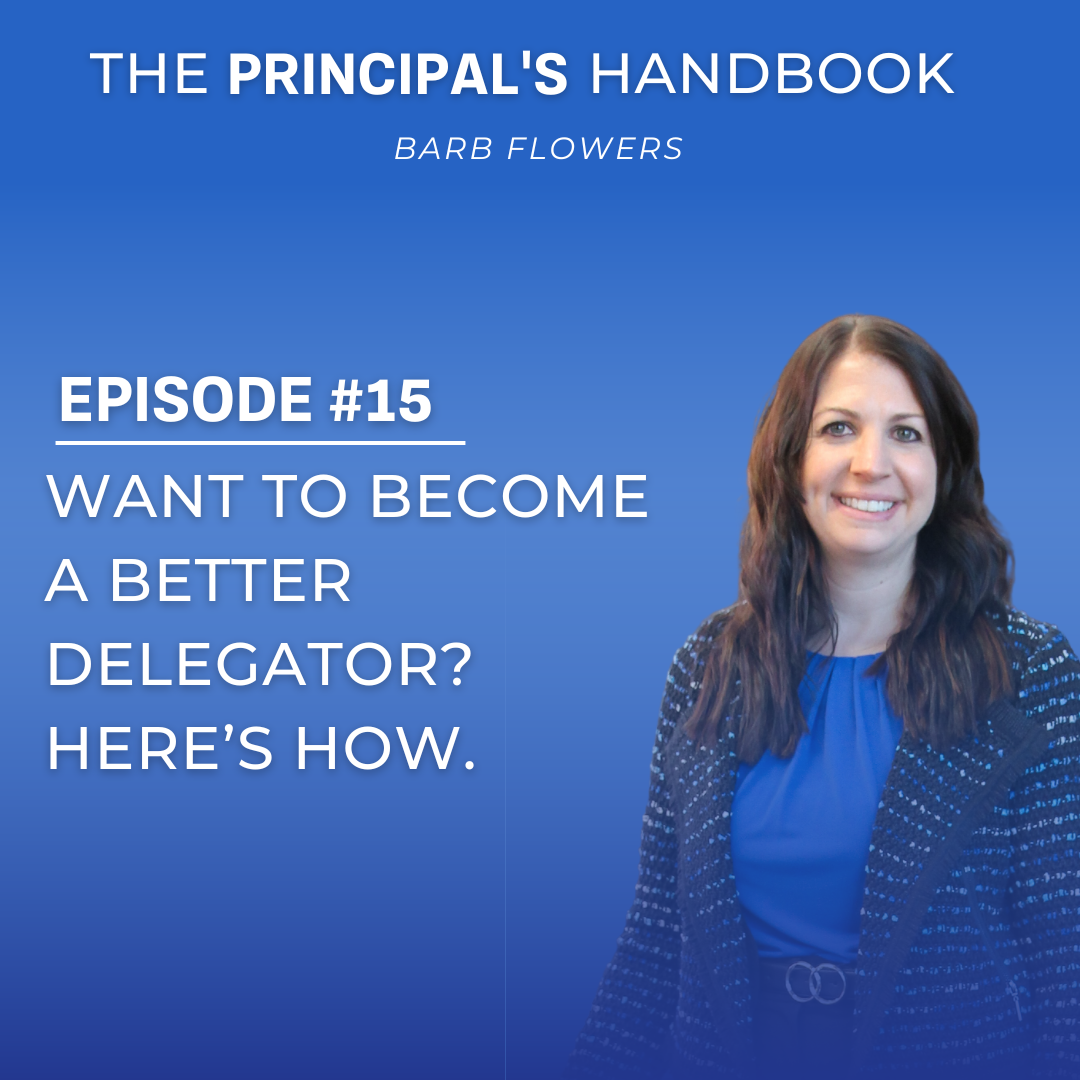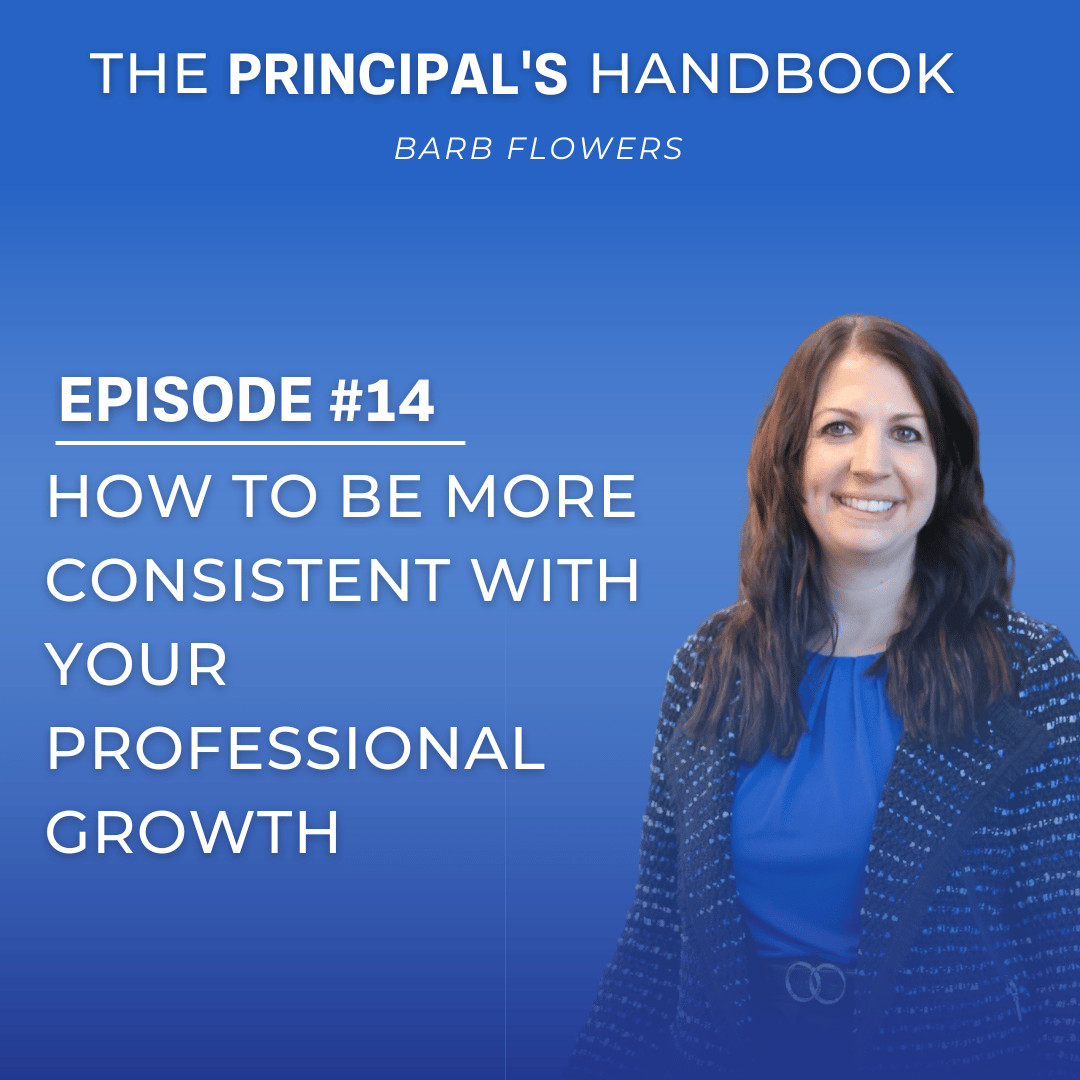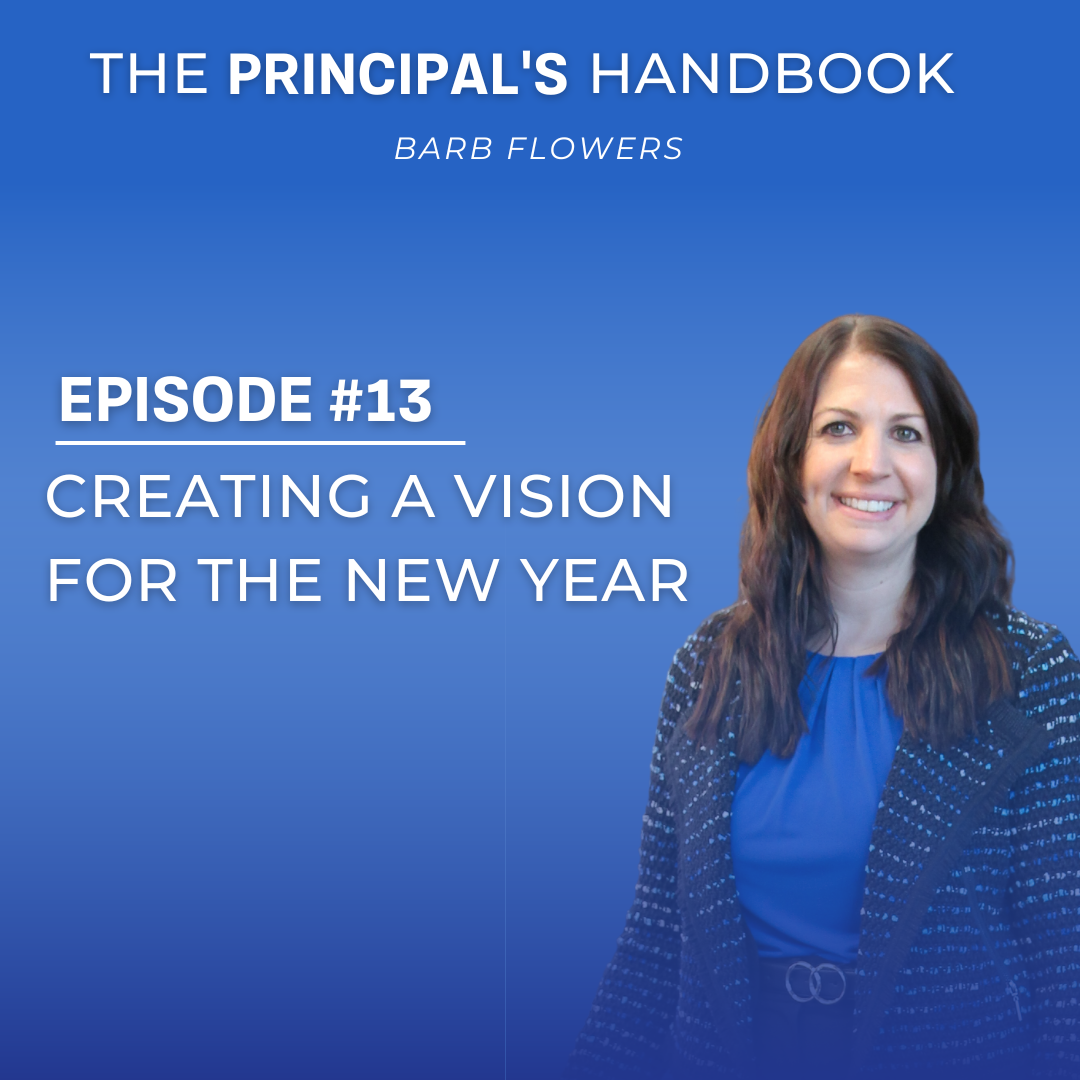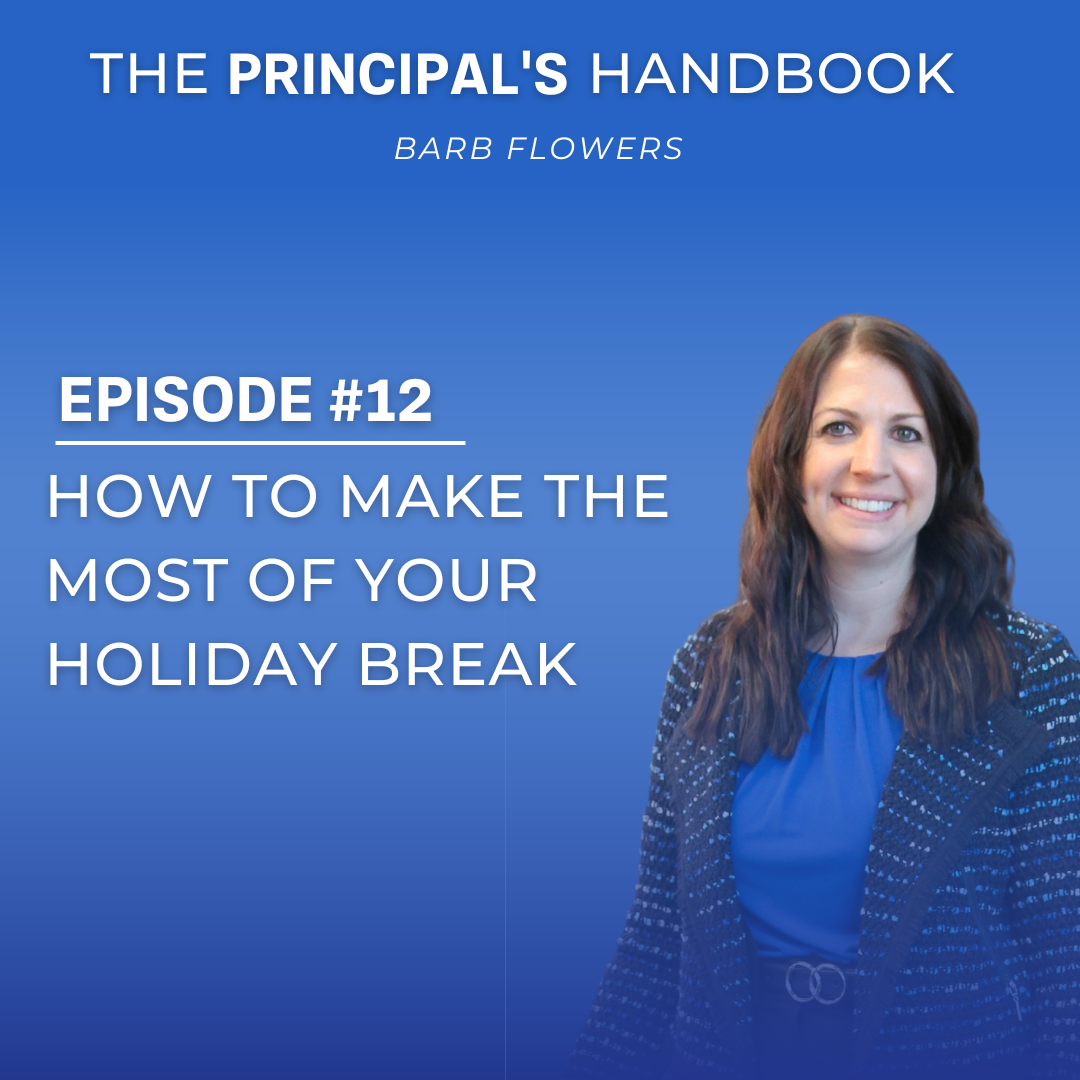Welcome
Welcome to The Principal’s Handbook, your go-to resource for principals looking to revamp their leadership approach and prioritize self-care. I’m Barb Flowers, a certified life coach with eight years of experience as an elementary principal.
Each week, we explore strategies for boosting mental resilience, managing time effectively, and nurturing your overall wellness.
From tackling daily challenges to maintaining a healthy work-life balance, we’ll navigate the complexities of school leadership together.
Join me in reigniting your passion for the job and fostering your sense of purpose as a school leader. Welcome to a podcast where your well-being is the top priority!
Today’s Topic: Dealing with Imposter Syndrome
Hey everyone! Today, we’re talking about something I think many of us have felt at one time or another: imposter syndrome.
Imposter syndrome is that feeling that you’re a fraud—that you’re not truly qualified for the role you’re in. You might dismiss your accomplishments as “luck” or brush off positive feedback.
Studies show that about 25–30% of high achievers experience imposter syndrome, and 70% of adults will experience it at least once in their lives.
Sometimes it’s an everyday feeling; other times, it’s just a one-time thing. It really depends on your personality and the thoughts you’re having.
I remember struggling with imposter syndrome early in my career. When I was hired as an assistant principal at just 28 years old, people often commented, “Wow, you’re so young to be an administrator!” Not in a mean way, but hearing things like, “That’s a big responsibility,” or, “How long did you teach?” made me start questioning myself.
Was I ready? Had I taught long enough? Those thoughts crept in, and I often had to work hard to talk myself through them.
Now, looking back, I know I wasn’t a fraud—I was a beginner. I was learning.
That’s so important to understand: feeling like an imposter doesn’t mean you are one. It just means you’re growing.
Even now, it’s easy to slip into comparison when I’m surrounded by other administrators with amazing ideas and successes. I’ve learned through thought work how to recognize that comparison and redirect it quickly. But I get it—it’s easy to feel like you’re not measuring up.
Six Tips for Dealing with Imposter Syndrome
Let’s dive into six strategies you can use to fight back against imposter syndrome:
1. Reflect on How You Got Here
Take time to think about the experiences and hard work that led you to where you are.
Even when I doubted myself early on, I could look back and see that I was chosen for my leadership experiences, my education, and my abilities. You didn’t land your role by accident. You deserve to be here.
2. Allow Yourself to Be a Beginner
When you try something new, it won’t be perfect—and that’s okay!
Being willing to be a beginner is crucial. Many high achievers link their worth to perfectionism, but perfection isn’t required for growth.
Remember: beginners aren’t imposters—they’re learners.
3. Remember: Nobody Knows Everything
No one has all the answers.
Even veteran principals encounter new situations they’ve never faced before. Leadership is about using your experience and judgment to make the best decisions you can.
You’re not alone in feeling uncertain sometimes.
4. Find a Mentor or Support System
Talk to someone you trust when you feel self-doubt creeping in.
I’ve leaned on my principals, superintendents, and coaches throughout my career. Having someone to talk things through with helps immensely.
If your state offers mentoring programs, check them out. And if you’re looking for one-on-one coaching, I’m always here to help!
5. Separate Fact from Fiction
When those negative thoughts arise, ask yourself: Is this a fact or just a feeling?
If you’re thinking, “I’m not doing anything good in my building,” challenge it.
There are always successes—you just have to notice them. Don’t let distorted thinking hold you back.
6. Reframe Negative Thoughts with Affirmations
Your thoughts create your feelings, which lead to your actions.
Choosing more positive thoughts will change how you feel and how you show up.
One great tool is using affirmations.
Here are five affirmations to help with imposter syndrome:
-
I believe in my abilities and potential.
-
I am deserving of my success and accomplishments.
-
I embrace growth and learning; mistakes help me improve.
-
I own my success. I am not a fraud.
-
I trust in my judgment and decision-making.
I like to journal one affirmation each morning and remind myself of it throughout the day. Over time, these positive thoughts become part of your subconscious and change how you act and feel.
Final Thoughts
The best advice I ever got was: Just take action.
When you’re feeling like an imposter, keep moving forward. Take consistent, positive steps to improve your mindset and your skills.
You get to decide how you show up each day—choose to be the person who keeps going, who isn’t afraid to fail, and who believes in their ability to grow.
Remember:
The best way to stop feeling like an imposter is to stop thinking like one.
If you’re interested in one-on-one coaching or want more tips throughout the week, you can find me on Instagram @barbflowerscoaching.
I also offer a free Confidence Strategy Planning Session where we evaluate your confidence using the five pillars I coach on and create personalized goals to help you grow.
If you’re interested, reach out—I’d love to help!
Thanks so much for tuning in today.
If you found this episode helpful, please leave a review so other principals can find it too.
Have a great week, and stay tuned for next week’s episode!


